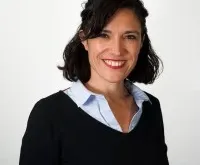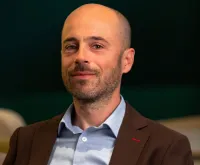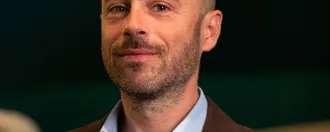The emlyon - Carbone 4 teaching and research chair
Strategy in the Anthropocene
The current epoch, called the Anthropocene, is marked by climate disruption, biodiversity loss and soil depletion, all mainly caused by the impact of human activity. This unprecedented reality raises major issues for companies, driving them into adapting to an environment in constant mutation. The traditional approaches are no longer enough. The purpose of the teaching and research chair of emlyon business school and Carbone 4 “Strategy in the Anthropocene” is to develop a strategic thinking framework for companies, encouraging the collaboration and innovation to address such crucial issues.

News about the research chair
Events
Designing Alternative Futures, Strategies, and Systems-Changes in the Anthropocene
September 30 – October 1, 2025
As part of the Carbone 4 Chair "Strategy in the Anthropocene", the IF Initiative and emlyon business school co-organized an Ideas Development Workshop.
The workshop brought together around fifty participants, including about ten PhD students and early-career researchers. The aim was to provide a multidisciplinary and multi-stakeholder platform for discussion in order to build bridges between business leaders and practitioners, and researchers in sustainability, management, and strategy. Through a series of roundtables and workshops, the event aimed to foster the development of new ideas and discussions grounded in the latest research and aligned with business needs.
Context
We live in a world of uncertainty and interdependent crises, marked by climate disruption, biodiversity loss and soil depletion, geopolitical tensions and the rarefaction of natural resources, all mainly caused by the impact of human activity. The reality of this epoch, the Anthropocene, raises major issues for individuals but also companies, who must adapt to an environment in constant mutation where traditional approaches are no longer sufficient to ensure perennity.
As seven of the nine planetary boundaries have already been crossed, new questions are arising in both research and practitioner communities on how organizations can prepare for growing socio-ecological grand challenges and adapt their strategies.
To tackle these questions and address their complexity, emlyon business school and IF Initiative by Carbone 4 co-organized an Ideas Development Workshop on 30 September and 1 October 2025, to explore the design of alternative Futures, Strategy and Systems-Change in the face of the Anthropocene and Planetary Boundaries.
Aim and objectives
By providing a multi-disciplinary and multi-stakeholder discussion platform, the ambition of this workshop was twofold:
To explore how organizations - from both business and research - can collectively
imagine and design alternative futures that are scientifically grounded, and ecologically and economically viable.
To build a shared strategic language capable of aligning business decisions with
planetary boundaries and social foundations and enable the development of new research ideas and discussions based on the latest research and grounded in the needs of businesses.
Over two days of keynotes, spotlights and facilitated discussions, participants examined three interrelated questions
- Track #1 : Future(s)-making in the Anthropocene: How can we imagine, design and learn from alternative, possible and desirable futures?
- Track #2 : Strategizing and Organizing in the Anthropocene: How can we develop a shared science-based strategy framework for the Anthropocene?
- Track #3 : Designing Systems-Changes in the Anthropocene: How can we foster systems transformations?
One thing is certain : the Anthropocene affects us all and we must build solutions together to address its challenges.
Find out more information about the discussions, participants and presentations in the workshop proceedings here.
About the chair
Climate disruption, biodiversity loss and soil depletion are the symptoms of what is being recognized by the scientific community as a new geological epoch. It is called the Anthropocene. Its main characteristic: the era of man as the dominant force shaping Earth's geophysical composition and processes.
For the first time ever, humanity is confronted with the limits of its natural and biophysical environment.
For companies, such an unprecedented situation will lead in the short or medium terms, to structural transformations, brutal ones sometimes, but mainly rarely foreseeable, of their direct business environment, but also more broadly, of the socio-economic system in which they operate (behavioral change, reconfiguration of value chains or yet again, evolution of standards and of institutions).
To secure their economic prosperity, companies need to be prepared.
The objective is two-fold, on the one hand, to cease the opportunities and control the risks associated with this unprecedented context, and, on the other hand, to build confidence internally (staff) and externally (stakeholders), as traditional approaches are no longer appropriate. Usually based on prolonging or influencing historical trends (business as usual), such approaches often prove short-sighted, too compartmentalized, and even divorced from reality.
If efficient in terms of “where to play” and “how to win” when it comes down to sharing a perpetually growing cake, these approaches are intrinsically limited when dealing with the risks described above.
Additionally, while low-carbon transition is a collective issue all organizations have to address, such traditional approaches do not allow to identify potential collaboration avenues between them, even though they are essential.
The Anthropocene calls for a radical change in strategic thinking and actions; companies need to implement unprecedented means to perceive and provide meaning for the world to come, in order to better transform themselves and contribute to building “livable” worlds.
Objectives
The emlyon business school-Carbone 4 “Strategy in the Anthropocene” chair ambitions to contribute to the development of a framework and a method in business strategic thinking, to stand the test of the Antropocene and the planetary limits.
More practically, it will consist in:
- Conducting a doctoral research work around strategic leadership and manufacturing coalitions in the Anthropocene.
- Designing and testing pedagogical features for acculturation and competence growth of professionals and students, followed by conceiving and who are meant to imagine and lead strategies that respond to the challenges of the Anthropocene.
- Broadcasting as largely as possible, the research results and methods of strategic thinking in the Anthropocene, via publications (scientific communication, peer-review articles, books) and events.
About the consulting firm Carbone 4
Carbone 4 is a consulting firm specialized in decarbonization and adaptation to climate change. Carbone 4 guides its clients in building resilient strategies compatible with planetary limits, by putting forward its leading expertise, its sectoral experiences and state-of-the-art methodology.
To contribute to the transition, more than ever, companies need to picture and understand what could be their role in an undefined future, yet aligned with environmental constraints. The purpose of Carbone 4 is to help them achieve it. An important methodological work is being developed and this research chair founded with emlyon business school will be its catalyst.
Actors

Thomas Gauthier
Professor at emlyon business school
Thomas Gauthier is a professor at emlyon business school and is in charge of the course called “Sustainable Futures” which all students of the Grande Ecole Program, those of the International MBA and of the Executive MBA need to take. His research works focus on anticipation and organizations' strategies in the Anthropocene. He also explores the workings providing companies with the means to design “habitable” worlds.
Thomas Gauthier has a Doctorate in clinical medicine from the Imperial College London, a Masters of Science in electric and computer engineering from the Massachusetts Institute of Technology (MIT), and an engineer degree from the École supérieure de physique et chimie industrielles de Paris.
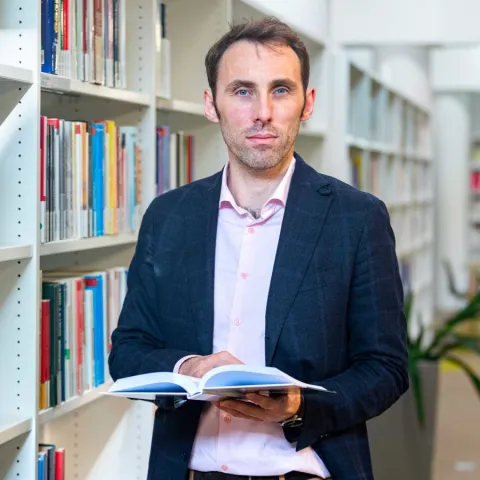
Bertrand Valiorgue
Professor at emlyon business school in stratey and governance
Professor in strategy and corporate governance at the emlyon Faculty, Bertrand Valiorgue is also a member of the Institut Français de Gouvernement des Entreprises (IFGE). His research works focus on corporate responsibility and corporate capacity to address the great challenges of the Anthropocene. His academic expertise covers notably the agricultural and food system sector. He graduated in 2008 from the Université Jean Moulin/Lyon 3 with a Doctorate in Management Sciences and was accredited to conduct research in management sciences at the Université Clermont Auvergne in 2016.
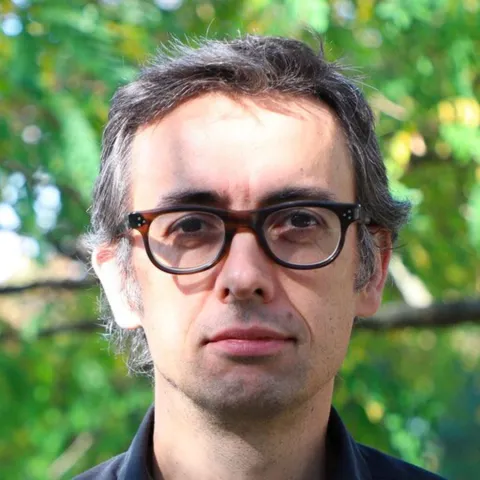
Jacques Portalier
Director of the IF initiative (Laboratoire C4) and project manager automobile industry
Since April 2020, Jacques has been driving (with Romain Grandjean) a development program for tools and methods, federating major groups and top-tier academic partners. The objective of this program is to design new tools for prospective strategy which will help users to better anticipate the ruptures and transformations associated with energy and climate-related issues. As an engineer (Centrale Lyon and ENSPM), he has a 20-year career at PSA, in both technical and strategic positions. As such, he has a unique experience on the technical, economical and legal aspects of the whole automobile industry. Committed to environmental issues (Master IGE of the Mines ParisTech), he worked in 2019 for the Haut Conseil Pour le Climat. He also contributed to the works of the Transformation Plan for the French Economy of the Shift Project.
Contacts

